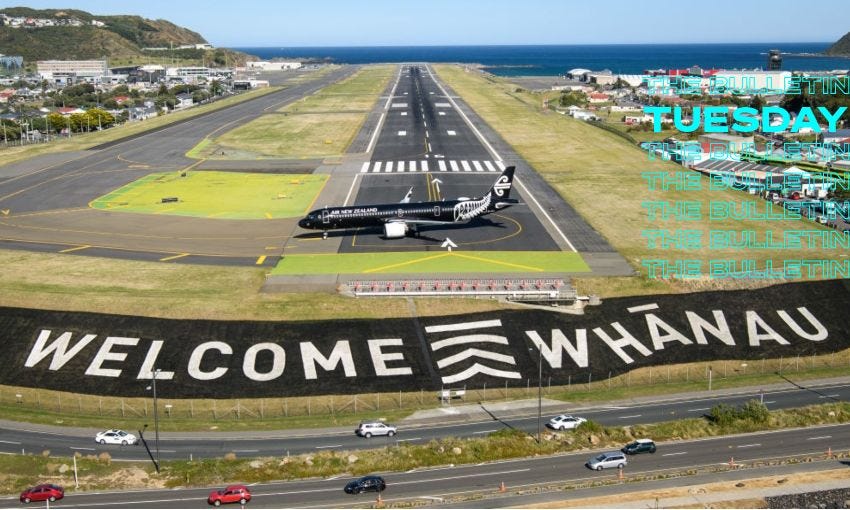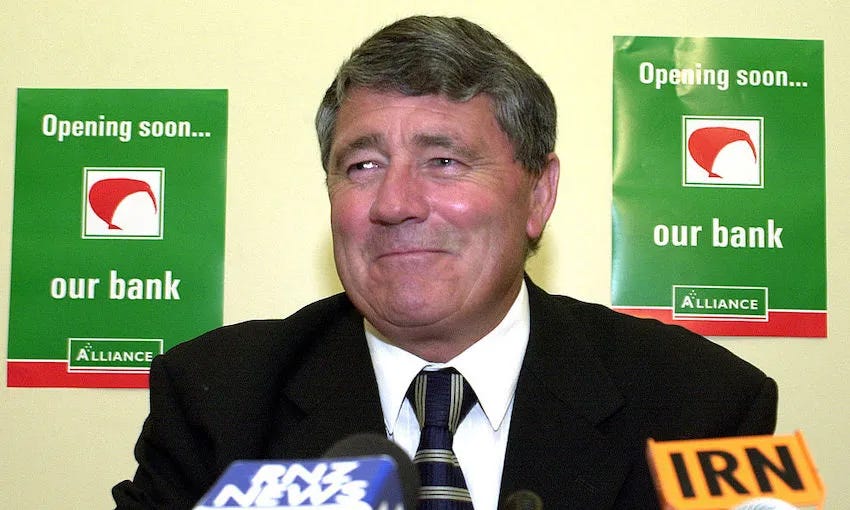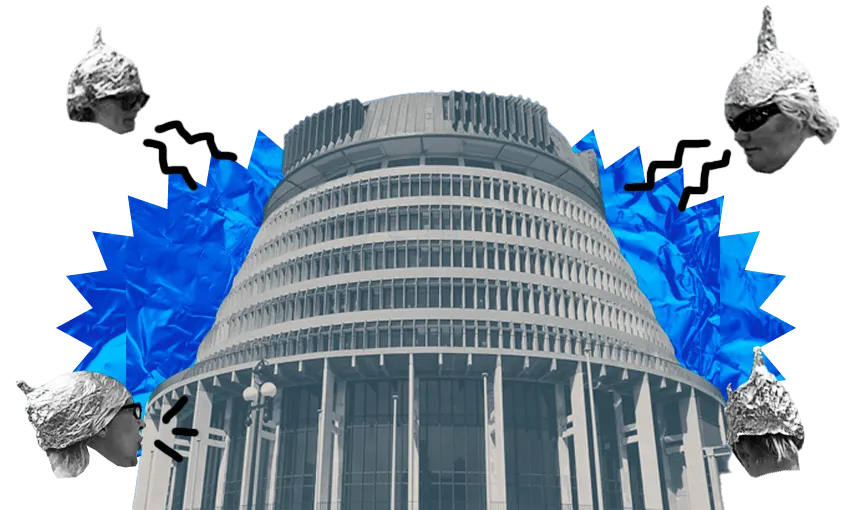Border fully reopens to New Zealanders from Saturday
With little risk of worsening the omicron wave, border restrictions are dropping ahead of schedule
Mōrena and welcome to The Bulletin for Tuesday, March 1, by Justin Giovannetti. Presented in partnership with Z Energy.
In today’s edition: Efeso Collins gets Labour backing; Russia’s economy is isolated; protest gets its own showers; but first, the border’s expedited reopening.
The border will reopen for New Zealanders on the weekend. (Getty Images)
New Zealanders can travel home from anywhere in the world on Saturday without self-isolation on arrival. Almost two years after the border was slammed shut with managed-isolation, it’s now opening again. Unfortunately, we’re not reopening to a world that has beaten back the pandemic, but one where New Zealand now has one of the world’s highest transmission rates. As the prime minister explained yesterday, with over 14,000 daily cases being reported within the country, MIQ has largely served its purpose. As The Spinoff’s live updates reports, the decision was made on the advice of David Skegg and his independent committee of scientists.
For a government whose Covid response has been marked by caution, this change came rapidly. Skegg’s group was asked for recommendations on the border settings last Wednesday, cabinet received them Sunday and voted to adopt them yesterday. By the end of this week, they’ll be in place. As Stuff writes, there will still be restrictions. Travellers need to be double-vaccinated, produce a negative pre-departure test and then another on arrival. Dropping self-isolation is expected to only add dozens of cases a week.
There’s a possibility this opening won’t be permanent. A third test will be required from arrivals about five days after arrival. Any person who tests positive will then have a full PCR follow up test. The result will also have its genome mapped. That will keep tabs on any new variants entering the country. That last point is critical and shows that this reopening is always up for review. “Personally, I’ll be surprised if we are still talking about the omicron variant at the end of the year,” said Skegg. If a nastier, more transmissible variant comes along, the border could be closed again. MIQ isn’t going anywhere.
The tourism industry wants a clearer reopening plan. Cabinet will be considering in the coming weeks whether to move forward the full reopening of the country, currently scheduled for July and October depending on where a tourist is coming from. “The tourism industry’s priority is the reopening of our borders to vaccinated international leisure and business travellers,” Tourism Industry Aotearoa’s Ann-Marie Johnson said in a statement. The prime minister warned that it’s unclear when tourism demand will pick up in a pandemic world and domestic travellers should remain a priority for some time. The Guardian reports that Australia’s tourism operators have reported a slow start and expect that it’ll be a year before their business recovers.
The Spinoff’s Covid data tracker has the latest figures.
A quick word. With omicron cases increasing and tensions running high, there has never been a greater need for trustworthy and freely accessible journalism. The generous support of our members powers all of The Spinoff's Covid-19 coverage, from live updates to the award-winning mahi of Toby Morris and Siouxsie Wiles. Tautoko mai, join The Spinoff Members today.
Labour backs Efeso Collins for Auckland mayoralty. The councillor was considered an outsider and described as “out of favour” with Labour only a few weeks ago, Toby Manhire writes. Now he’s the clear frontrunner, endorsed unopposed by the party. A month ago, Collins unveiled his candidacy in the virtual pages of The Spinoff. His first major announcement has been fares-free public transport.
New Zealand signs free trade deal with UK. For the first time since the United Kingdom turned its economy towards Europe in the 1970s, New Zealand farmers will enjoy tariff-free access to the UK. As the NZ Herald reports, exports to the country are expected to increase by 50% under a free trade deal that removes restrictions on 99.5% of New Zealand goods. Dairy, sheep and beef quotas will be slowly removed over the coming 15 years. The deal will also make it easier for British goods to come the other way.
Russia faces economic isolation as Ukraine’s army fights in major cities. The fiercest urban combat since 1945 is rocking Ukraine’s largest cities, with the UN reporting over 360,000 refugees. As Reuters reports, the Russian rouble has sunk to an all-time low and BP, the largest foreign investor in Russia, has abandoned a $25 billion investment in the country. New Zealand has banned 80 Russians from visiting, but won’t name them, according to BusinessDesk. A day after it said it would maintain shipments to Russia, Fonterra has reversed course, Stuff reports.
Looking beyond the direct conflict, global politics are shifting rapidly. Switzerland has dropped its traditional neutrality and imposed sanctions on Russia. China now faces a difficult situation and no one knows what’s about to happen. It has a declared friendship with Vladimir Putin’s Russia and could help its neighbour through economic sanctions, at the risk of being pulled into them. Or, pull away. The sight of a powerful state meddling in another’s domestic politics and supporting separatist movements is a horror to policy makers in Beijing. An international system where countries could overtly support groups in Taiwan, Xinjiang and Tibet is not one China wants. The Guardian has more.
Incredible changes in the Bundestag. Over the past 30 years, Germany had sought ever deeper economic ties with Russia while allowing its military to fall into a state of deep disrepair. Most German homes are heated with Russian gas. As recently as last month, it seemed Germany would be the weak link in the western alliance. Instead, there’s been a staggering shift in German politics. After generations of silence, Germany found its roar. The country blocked the opening of a new Russian pipeline, Nord Stream 2, that’s been a central issue in European politics for years. Then as DW reports, the chancellor announced a crash $167 billion programme to immediately modernise the country’s military. There’s now talk of making the arms buildup permanent by writing it into the constitution.
This year marks the 20th birthday of Kiwibank. And while the locally owned institution feels like a natural part of our financial landscape these days, it took a fair bit of pluck – and the dogged determination of a former deputy PM – to get it off the ground in the first place. To celebrate the big two-zero (and one million customers), Russell Brown took a good look back at where Kiwibank came from and how it's grown, and spoke to the key voices from within the organisation about where it's going next.
After plumbed-in toilets, the Wellington protest gets showers. The occupation outside parliament is in its 22nd day, that’s now longer than the Ottawa protest that inspired it. As Stuff reports, the protest has unveiled a pre-fab shower block and a system that might be able to heat the water. It’s unclear how protesters got the supplies through the police perimeter. On RNZ, the head of the Police Association confirmed that officers who resigned rather than get vaccinated have joined the illegal protest and are facing their former colleagues on the frontline.
Major climate report warns that it’s now time to prepare for the coming storm. The world will cross the 1.5C threshold early in the next decade, the IPCC has warned in its “bleakest warning yet”. The time for ingenuity and slowing emissions has all but ended, humanity now needs to prepare for a future of rapid-fire climate disasters. As Stuff writes, New Zealand and Australia are at “very high risk” of serious and unavoidable damages. New Scientist has a chilling quote to sum up the report: “Climate change isn’t lurking around the corner waiting to pounce, it’s already upon on us, raining down blows on billions of people.”
High Court could order the government to adopt stricter climate targets. The Climate Change Commission’s advice to government is being challenged in court, Stuff’s Olivia Wannan reports. Lawyers are arguing that the commission’s advice, and the government’s resulting targets, aren’t ambitious enough to keep warming to 1.5C as required by the Zero Carbon Act. It’s an interesting case that looks at the incredible complexity of climate modelling and necessary action.
Got some feedback about The Bulletin, or anything in the news?
Get in touch with me at thebulletin@thespinoff.co.nz
Right now on The Spinoff: Dylan Reeve reports on the tinfoil hat brigade in Wellington. Yes, they really are wearing tinfoil hats. Toby Manhire writes that there are reasons to cheer the High Court’s vaccine mandate decision. Elspeth Frascatore, an Auckland ED doctor, responds to calls to ditch Covid rules. Alex Casey looks at the perils and pleasures of lipstick-wearing in the age of the face mask. Alex Casey also considers whether a car rental company has the strictest employee grooming guide in the country.
Black Caps hope of historic first test series win over South Africa. RNZ reports that the team is relying on Devon Conway to save the test as it seems to slip away. In international sport, FIFA and the Olympic committee are both planning to exclude Russians from play, decisions that could impact years of international sport.







